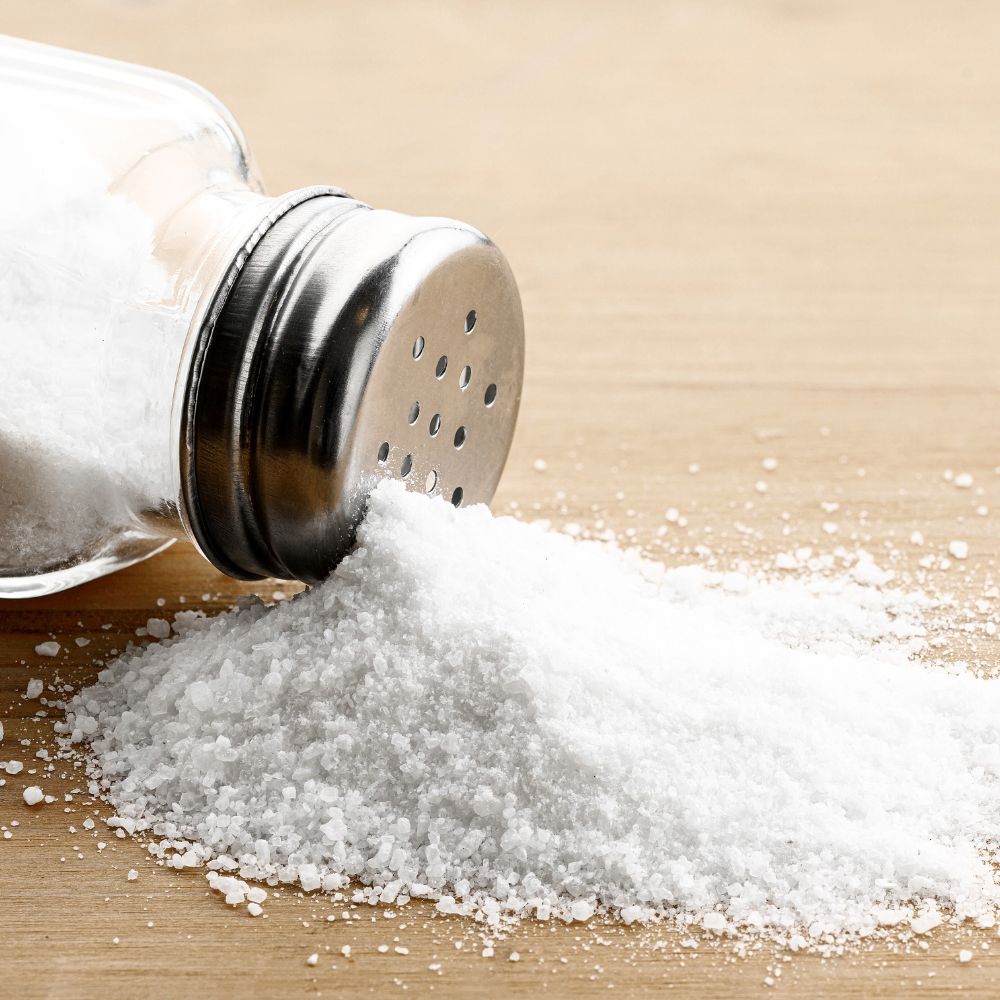Salt, specifically sodium chloride, is often viewed with caution due to its association with health issues like hypertension. Sodium, however, is essential for several body processes, most notably the health and function of the muscles. This article explores the relationship between salt and muscles, examining its benefits, recommended intake, and considerations for athletes and active individuals.
The Role of Sodium in Muscle Function
An essential electrolyte that aids in controlling the body’s fluid balance is sodium. It’s necessary for a number of functions that directly affect how muscles perform:
- Nerve Signal Transmission: Sodium is critical for the generation and transmission of electrical impulses in nerves. These impulses are necessary for muscle contractions, enabling movement and coordination.
- Muscle Contraction: When a nerve signal reaches a muscle fiber, sodium ions flow into the muscle cells, leading to a cascade of reactions that result in muscle contraction. This process is fundamental for all types of physical activity, from daily tasks to intense workouts.
- Hydration and Electrolyte Balance: Sodium helps maintain fluid balance in the body. Proper hydration is essential for optimal muscle function, as dehydration can lead to muscle cramps, fatigue, and decreased performance.
Benefits of Salt for Muscle Health
1. Improved Performance
Adequate sodium levels can enhance athletic performance, particularly in endurance sports. When exercising, especially in hot conditions, sodium is lost through sweat. Replenishing sodium helps maintain hydration and prevents hyponatremia, a condition caused by low sodium levels that can lead to fatigue, confusion, and muscle cramps.
2. Enhanced Recovery
After intense physical activity, sodium can help facilitate recovery. It aids in fluid retention, which is crucial for replenishing lost fluids and nutrients in the muscles. Proper hydration and electrolyte balance can reduce recovery time and improve muscle soreness.
3. Prevention of Cramps
Muscle cramps can occur during or after exercise, often due to an imbalance of electrolytes, including sodium. Ensuring adequate sodium intake can help prevent these painful contractions, allowing for smoother workouts and recovery.
Recommended Sodium Intake
The recommended daily sodium intake varies depending on factors such as age, activity level, and overall health. The general guideline suggests limiting sodium intake to about 2,300 milligrams per day.(i.e., 1 teaspoon). However, athletes or individuals engaged in intense training may require more sodium to compensate for losses through sweat.
Signs You May Need More Sodium
- Increased sweating: If you’re training in hot, humid conditions or sweating excessively, consider increasing your sodium intake.
- Muscle cramps: Frequent cramps during or after exercise may indicate an electrolyte imbalance.
- Fatigue or dizziness: These can be signs of dehydration or low sodium levels, especially during prolonged exercise.
Sources of Sodium
While table salt is the most common source of sodium, it’s also found in various foods:
- Processed foods: Many packaged foods, such as snacks, sauces, and cured meats, contain added sodium.
- Natural sources: Foods like celery, beets, and milk also provide sodium naturally.
- Electrolyte drinks: Sports drinks often contain sodium and other electrolytes to help replenish losses during intense workouts.
Considerations and Cautions
While sodium is essential for muscle function, excessive intake can lead to health issues, such as high blood pressure and cardiovascular problems. It’s important to strike a balance:
- Listen to your body: Pay attention to how your body responds to sodium intake, especially during and after exercise.
- Consult a healthcare professional: If you have specific health concerns or conditions (e.g., hypertension), consult with a healthcare provider for personalized advice on sodium intake.
Conclusion
Salt, particularly sodium, plays a crucial role in muscle function, performance, and recovery. For active individuals and athletes, ensuring adequate sodium intake can enhance performance and prevent issues like cramps and dehydration. However, it’s essential to balance sodium consumption with overall dietary needs and health considerations. By understanding the role of salt in muscle health, you can make informed choices that support your fitness goals and overall well-being.

